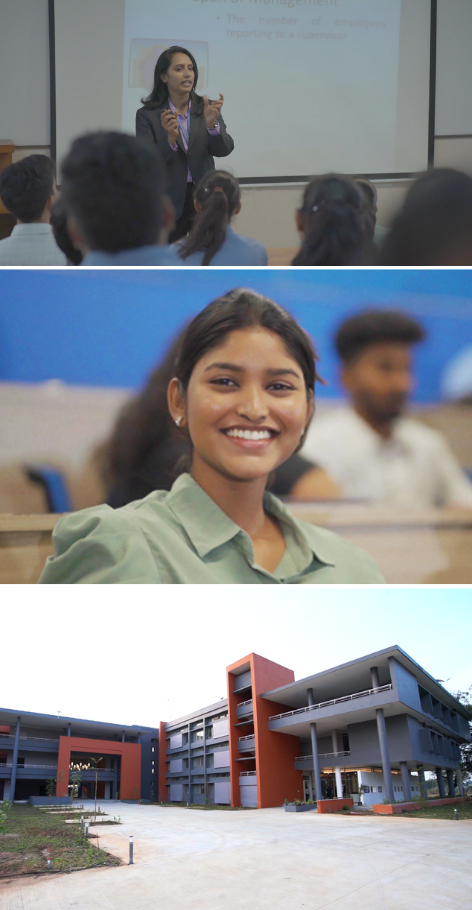Table of Contents
You may have encountered numerous stories of mid-career professionals who, after obtaining their undergraduate and graduate degrees, experienced significant growth early in their careers and initially saw no need for further education. However, over time, many of them faced career stagnation, feeling stuck and unable to identify growth opportunities. There are also some people who are proficient in technical skills but find themselves struggling to influence, impact, and lead effectively. Observing their peers advancing rapidly, they realised the urgent necessity to upskill and progress in their careers.
In a Wall Street Journal survey of over 900 executives, 92% emphasised that soft skills—such as communication, curiosity, and critical thinking—are as crucial as technical skills. Despite this, 89% of the executives admitted facing significant challenges in finding candidates who possess these essential soft skills.
If these limitations are impeding your career growth too, you must enhance your management perspective, along with essential soft skills such as problem-solving, creative thinking, innovation, and leadership. If this resonated with you, you’ve come to the right place, as this blog is designed to address those needs.
Are you considering a 2-year full-time MBA in India?
In today’s rapidly changing educational landscape, individuals have numerous avenues to achieve their academic and professional goals. Among these, pursuing a 2-year MBA has long been considered a secure and prestigious option, known for its comprehensive curriculum and esteemed reputation. However, many MBA full-time programmes across the nation have not updated their curricula, resulting in graduates struggling to address industry-relevant questions during job interviews. This gap often leaves students disheartened, especially after significant investments in their education.
Is there a better alternative?
Absolutely!
PGDM (Post Graduate Diploma in Management) programmes are gaining popularity and are increasingly favored by those seeking cutting-edge management education.
Why?
Difference between a 2-year full time MBA and a PGDM programme
| 2-year full time MBA | PGDM Programme |
| What is an MBA? | What is a PGDM? |
| The Master of Business Administration (MBA) is a postgraduate degree in management offered by most management colleges and universities worldwide. As an academic master’s degree, it can only be awarded by recognised institutions affiliated with reputed universities. These universities follow a unified curriculum for their business administration programmes and offer bachelor’s, master’s, and doctorate degrees. | The Post Graduate Diploma in Management (PGDM) is a diploma course, not a degree. It can be offered by autonomous institutes that are not affiliated with any university, meaning they cannot confer a 2 year MBA program. In India, PGDM programmes are approved by the All India Council for Technical Education (AICTE). The curriculum of PGDM programmes is designed to meet industry needs and incorporates elements from AICTE’s model curriculum. |
| Reasons to consider an MBA | Reasons to consider a PGDM |
| The Master of Business Administration (MBA) is a prestigious degree designed to accelerate the career aspirations of individuals aiming for a management career. It also provides early-career professionals with opportunities to advance to senior roles with greater responsibilities. Typically, a full-time MBA programme lasts for two years. Many candidates pursue an MBA to refine their skills and become entrepreneurs and business leaders. One of the key advantages of an MBA is its versatility—it is open to graduates from any field, whether engineering, commerce, or arts. What matters is a desire to pursue a career in management and a particular interest in a specific functional area. However, it is essential to carefully consider several factors before choosing an MBA programme, as this decision will significantly impact your career. | The Post Graduate Diploma in Management (PGDM) is tailored for students fresh out of college looking to start a management career, or for professionals with around two years of experience seeking to advance their careers. The PGDM is highly beneficial for business-centric individuals focused on innovation and sustainability, who are in high demand. The programme provides extensive and immersive exposure to all aspects of management. The PGDM curriculum aims to integrate learning and exposure across various functional areas and to enhance overall awareness. Some PGDM programmes are particularly innovative, incorporating the latest industry trends. Internships are mandatory and part of the curriculum, offering students valuable industry exposure and experience, which aids in shaping their professional goals. The primary aim of the PGDM programme is to develop well-rounded individuals ready to navigate the challenging business world. |
| MBA specialisations | PGDM specialisations |
|
|
| Affiliation and Accreditation | Affiliation and Accreditation |
| As an academic degree, the Master of Business Administration (MBA) is exclusively offered by universities and institutes affiliated with universities. The curriculum of MBA programmes is accredited by the University Grants Commission (UGC), ensuring the quality and standardisation of education in business administration. | Autonomous institutions such as the Badruka School of Management lack the authority to confer degrees. Consequently, their flagship programme, the Post Graduate Diploma in Management, holds recognition as a diploma and falls under the regulatory purview of the All India Council for Technical Education (AICTE). |
| Academic Differences | Academic Differences |
| MBA programmes lean towards theoretical teachings. | PGDM courses prioritise technical aspects and offer exposure to real-world business scenarios. An additional advantage of PGDM programmes, being offered by autonomous institutes, is their ability to update their curriculum more frequently to incorporate trends in business management and emerging changes. |
| Curriculum | Curriculum |
| Management is a dynamic field, with frequent changes occurring daily. However, many universities maintain a rigid stance, often failing to update their MBA syllabi in line with industry requirements. As a result, MBA students may find themselves disadvantaged by an outdated curriculum. | In contrast, PGDM courses face no such limitations. Due to their autonomous nature, these institutes are highly responsive to the evolving demands of the industry. The PGDM curriculum is regularly updated to ensure that students are well-versed in current industry trends, making PGDM programmes more effective at preparing students to be industry-ready. |
What about the long-term impact on the profession?
In both India and abroad, the MBA program and PGDM programmes are equally valued in terms of career prospects. Holding a PG diploma instead of a degree is not seen as a disadvantage. Ultimately, the reputation of your university or institute, and more importantly, your professional skills and capabilities, are what truly matter.
2-year full-time MBA program or PGDM? Which one should you opt for?
You must evaluate them and choose based on your academic and professional goals. However, it has been observed that students with a PGDM typically command higher starting salaries compared to their MBA counterparts.
While MBA graduates generally start with salaries ranging from Rs 7-10 lakhs per year, PGDM graduates often begin their careers with average starting salaries between Rs 12-15 lakhs per annum.
To secure top-paying roles, it is essential to attend one of the premier MBA institutions in the country. While India offers several esteemed destinations for MBA studies, opting for Hyderabad to pursue a PGDM is particularly advantageous, as it is a thriving technology hub with a vibrant community. The city boasts a concentration of software companies and a flourishing startup ecosystem, providing ample networking and career opportunities.
So which are the top MBA colleges in Hyderabad? Let’s find out…
The top MBA Colleges in Hyderabad offering a PGDM programme?
Take a look at this list of top MBA colleges in Hyderabad that you can choose from –
- Badruka School of Management
- Siva Sivani Institute of Management
- Vignana Jyothi Institute Of Management
- IIRM Hyderabad
- Symbiosis Institute of Business Management
- Institute of Management Technology
- GITAM Hyderabad Business School
All these institutes are great, but do you know which one’s the best?
The PGDM programme by the Badruka School of Management
Will equip students to thrive in the modern-day workplace.
The PGDM programme at Badruka School of Management offers premier management education that meets international standards. The curriculum integrates innovative and core courses to build a strong foundation in management. This forward-thinking approach develops the critical skills and perspectives necessary for success in the modern workplace.
Pillars of the PGDM programme
Feels like a dream?
But are you eligible?
Eligibility criteria for the PGDM programme at Badruka School of Management
- Class 10th and Class 12th scores and mark sheets
- Undergraduate score and mark sheets
- Any other certificate showcasing academic and extracurricular records and achievements
- Certificates showcasing work experience, if any
Check out the entire admission process





